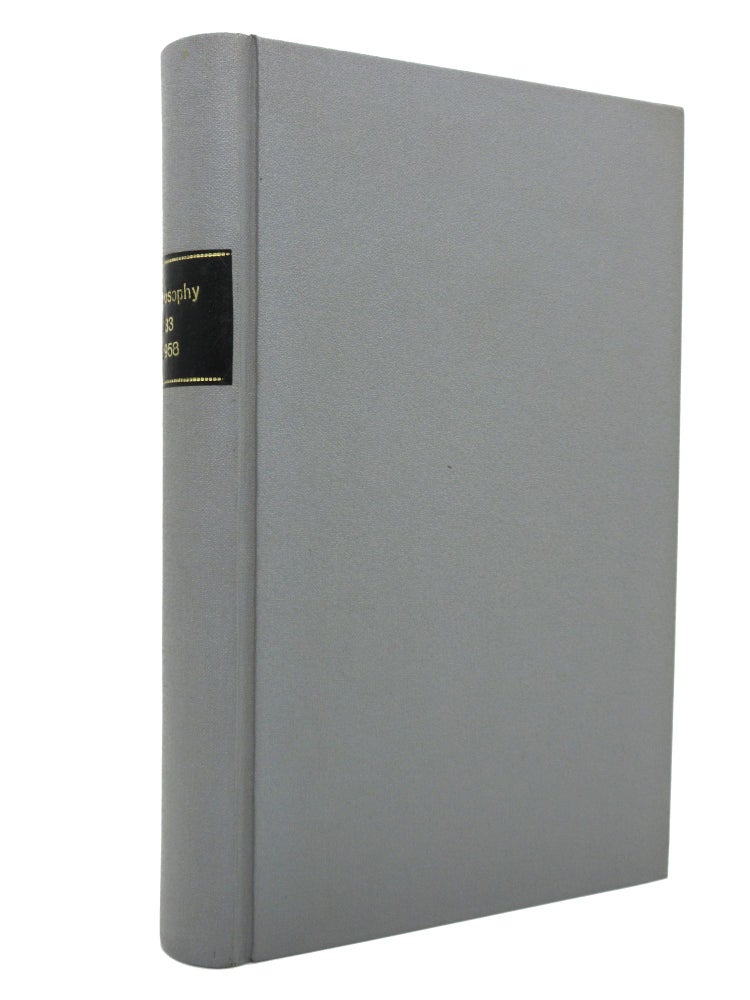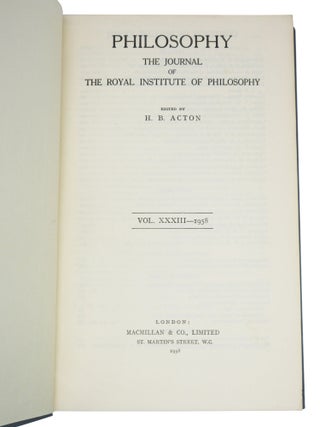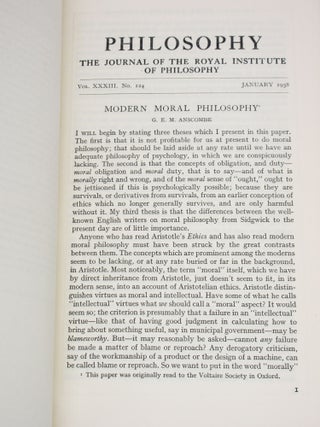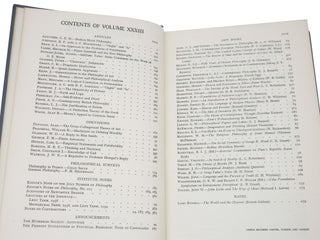“Modern Moral Philosophy” in Philosophy: The Journal of the Royal Institute of Philosophy, Vol. 33 (XXXIII), No. 124 (January 1958)
London: Macmillan & Co., Limited, 1958. First bound edition. Octavo. Volume XXXIII (33)—1958, bound in original boards. Minor scuffing and spotting to page block; pencil bookseller notations to front pastedown endpaper, else a near-fine bound edition of Volume 33 (1958) of Philosophy: The Journal of the Royal Institute of Philosophy, complete with advertisements. Item #117
Uncommon bound first edition of the journal Philosophy with G. E. M. Anscombe’s (1919–2001) landmark article “Modern Moral Philosophy,” which offered a powerful critique of the Kantian and utilitarian ethical traditions in modern moral philosophy—and is renowned for introducing the term “consequentialism” into the lexicon of analytical philosophy and for inaugurating a revival of Aristotelian virtue ethics. In her article, Anscombe, a distinguished British analytical philosopher and professor at the University of Cambridge, set forth a powerful critique of Kantian and utilitarian ethics, arguing that both sought a foundation for morality grounded in legalistic concepts, and that such concepts do not make sense when no “lawgiver” is assumed. Given modernity’s secularism and loss of belief in God as lawgiver, Anscombe argued that our only path to supplying a foundation for ethics is through the notion of virtue, which is to be understood separately from obligation as a part of human flourishing. And in order to properly address virtue, she insisted that we must first investigate and correct human psychology. Anscombe’s 1958 Philosophy article would go on to greatly influence modern ethical philosophy, particularly in the virtue ethics works of Alasdair MacIntyre, Philippa Foot, and Rosalind Hursthouse. Indeed, in many important respects, Alasdair MacIntyre’s milestone work After Virtue (1981) is an extension of Anscombe’s thought in “Modern Moral Philosophy.” An uncommon bound first edition of this pathbreaking work by one of the twentieth century’s most influential philosophers and ethical theorists—and a bright and apparently unread edition of this classic.
Price: $1,200.00






